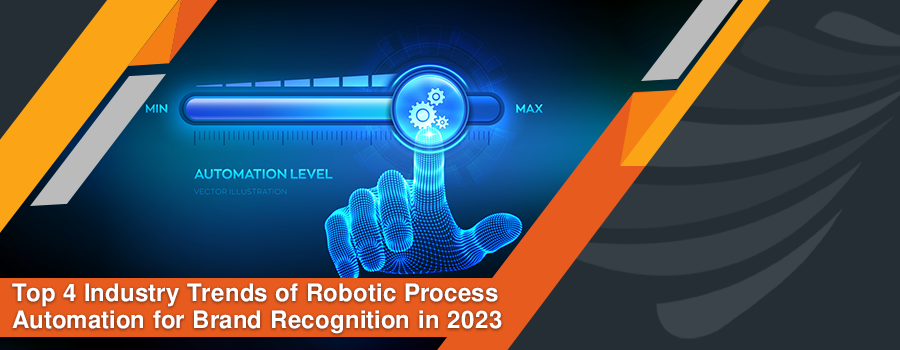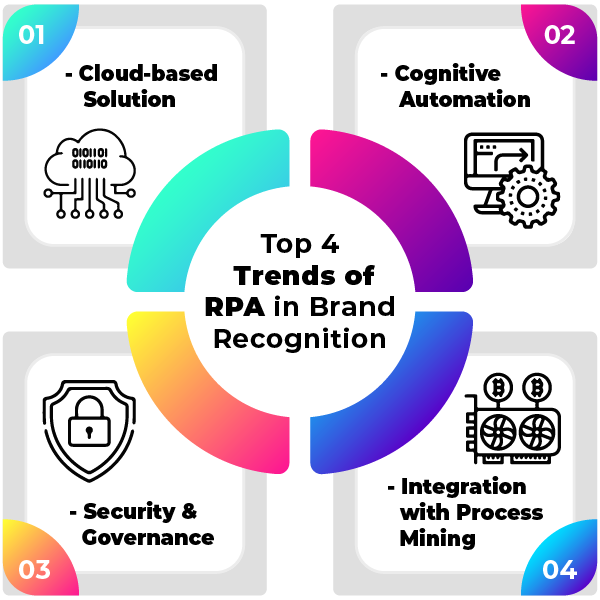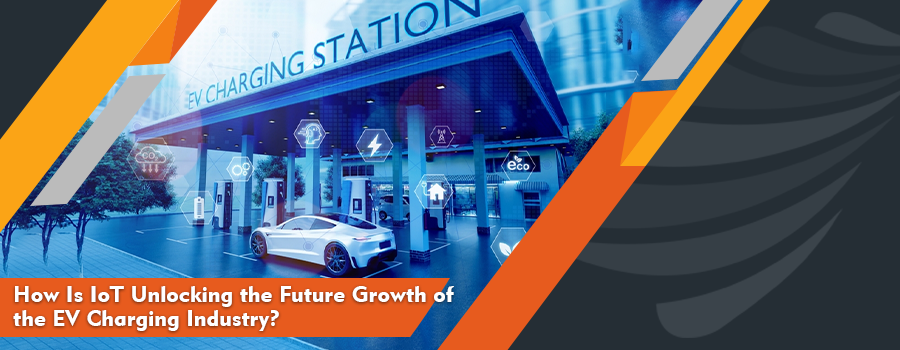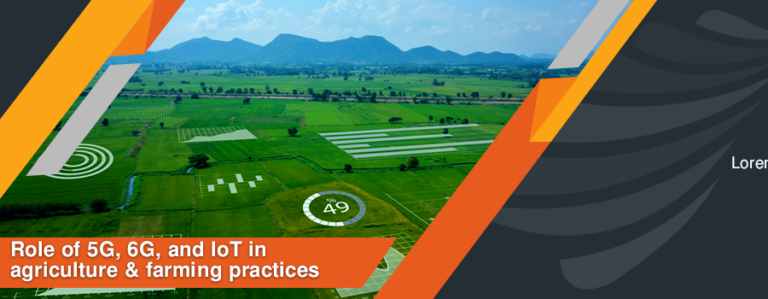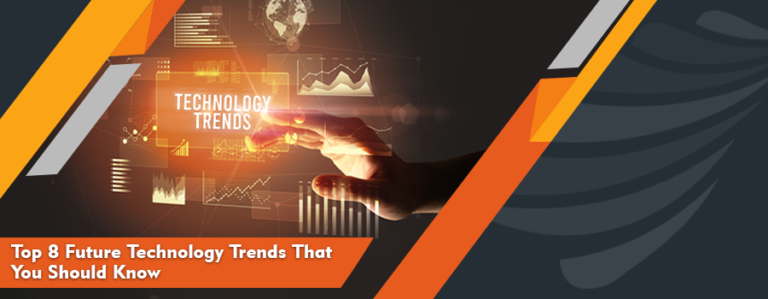Robotic process automation (RPA) refers to software technology. It makes it easy to deploy, manage and build software robots that imitate human actions and interact with software and digital systems. Software robots can understand and perform different activities, such as understanding the meaning of speech, responding to specific inputs, and performing various actions by extracting, identifying, and processing data. Their operations, as compared to humans, are faster, more accurate, have fewer chances of error, and remain consistent.
Due to the vast application of RPA in business growth, development, brand recognition, and awareness, we have observed an increased upsurge in its implementation in business development.
Top 4 Trends of RPA in Brand Recognition
– Cognitive Automation
Robotic Process Automation (RPA) can provide cognitive automation by integrating artificial intelligence and machine learning technologies. It enables RPA to automate repetitive, rule-based, and complex tasks that require high-level decision-making and problem-solving capabilities.
We can achieve cognitive automation by using intelligent bots programmed to adapt to complex scenarios based on data inputs. For example, intelligent bots can analyze customer interactions and behavior data to identify trends and patterns. Later, it performs data processing and evaluation to suggest personalized solutions and decisions that meet customer needs.
By implementing cognitive RPA, businesses can make accurate predictions about customer behavior and preferences, leading to higher customer satisfaction and brand recognition. It is because cognitive RPA enables organizations to deliver a personalized and consistent customer experience, which is essential for building strong customer relationships and brand loyalty.
– Cloud-based Solution
Cloud-based Robotic Process Automation (RPA) is a cutting-edge approach to automating business processes that involve leveraging artificial intelligence, cloud-native architecture, and web-based software. It’s gaining popularity because it provides cost-effective and flexible solutions that help businesses enhance their agility and competitiveness, improving brand recognition.
We can access cloud-based RPA from anywhere with an internet connection and on any device. It is one of the best solutions for business developers to automate their processes without investing a huge amount. In addition, users can leverage automation self-service capabilities to automate tasks without requiring technical expertise, empowering them to become more productive and efficient.
One of the key benefits of cloud-based RPA is its web-based interface, which provides an intuitive and user-friendly way to automate tasks. It helps to reduce manual errors, improve productivity, and allow employees to focus more on other complex tasks.
– Integration with Process Mining
Process mining is technique businesses use to monitor, identify, and improve their processes and operations. When combined with RPA, process mining can go beyond identifying areas of improvement and backlogs to adjusting and developing workflows and procedures with enhanced efficiency. We achieve this through the analysis of event logs generated by various systems.
RPA solutions are now being integrated with process mining to provide in-depth insights into the efficiency and performance of automated procedures and programs. It allows businesses to enhance brand awareness and recognition by improving the quality and effectiveness of their processes.
By leveraging RPA and process mining, businesses can identify bottlenecks, optimize workflow automation, and improve operational efficiency.
Moreover, RPA and process mining can help businesses make data-driven decisions based on real-time insights, ultimately leading to better business outcomes. By continuously monitoring and analyzing processes, companies can quickly identify issues and opportunities for improvement, resulting in a competitive advantage in the marketplace.
– Security and Governance
RPA can enhance security, even for government entities, by monitoring the behavior of civil servants through digital systems and notifying them of any unusual activity. It allows real-time security operations by revoking data access or using account-based access controls. RPA also utilizes machine learning and artificial intelligence models to identify threats and risks and prevent system breaches.
Bots use heuristics to make near-correct guesses by considering data from previous events and predefined rules and standards. It enables them to quickly identify potential threats and take action to prevent them.
Moreover, implementing high-security standards helps companies protect user information, ensuring privacy and security. It increases customer trust and loyalty, ultimately enhancing brand awareness and recognition.
In addition to enhancing security, RPA also helps businesses achieve regulatory compliance. Automating compliance monitoring and reporting tasks, RPA enables firms to meet regulatory requirements promptly and efficiently.
Future Aspects
Robotic Process Automation (RPA) is a rapidly growing field poised to evolve and integrate with emerging technologies in the coming years. With blockchain integration, RPA can enhance its reliability and security, ensuring that RPA systems are secure and tamper-proof. By integrating with the Internet of Things (IoT), RPA can connect with various sensors and devices, enabling a fully automated, less risky, and more secure system.
As RPA advances, it will become an integral part of business operations, providing improved accuracy, speed, and consistency. The integration of RPA with blockchain and IoT will enhance the overall performance of businesses, allowing them to operate with greater efficiency, lower costs, and increased profitability.
In addition to these advancements, machine learning, and artificial intelligence will allow RPA systems to learn and adapt to new situations and tasks. It will make RPA even more flexible and adaptable, enabling it to handle increasingly complex and diverse tasks.
Conclusion
Robotic Process Automation (RPA) is a valuable technology for businesses seeking to enhance brand recognition and awareness. RPA provides several benefits, including increased efficiency, accuracy, and consistency in business operations, leading to improved decision-making capabilities and customer satisfaction. By adopting RPA in business, companies can experience process improvement, enhancing
their brand recognition. With the continued evolution of RPA technology and integration with other emerging technologies, we can expect to see continued growth and adoption of RPA in the coming years.

